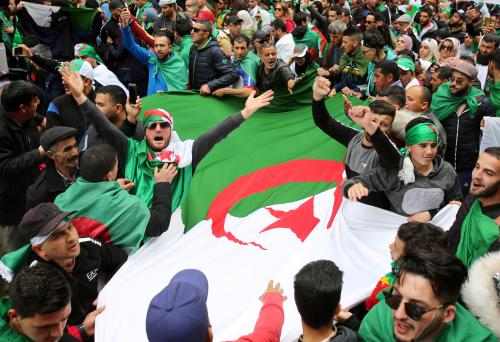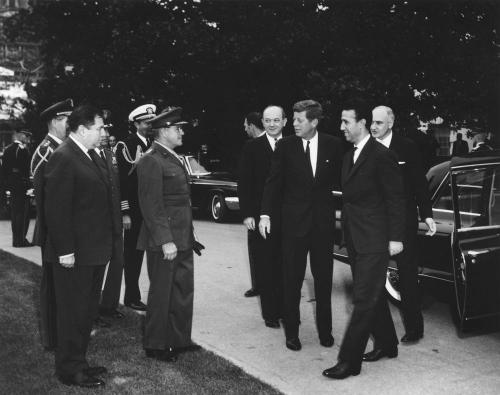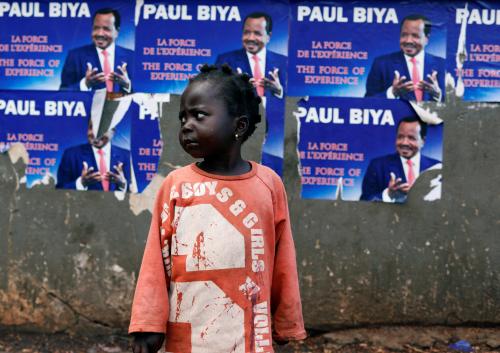The popular protests in Algeria, the most dynamic political process in the Arab world since the Arab Spring, have not only toppled a dictator, they have also brought to jail the darkest figure in the country’s tortured past: former intelligence chief Muhammad Mediène, also known as the Butcher of Algiers. A thorough public investigation of his quarter-century in office would expose the ugly side of Algeria’s opaque police state.
Mediène was the longest-serving intelligence chief in the world when he was sacked by President Abdelaziz Bouteflika in 2015. He was notorious for being hidden from view: There are only a handful of photos of him, and most are fuzzy. He was known as the leader of the army faction called Les eradicators, which advocated a ruthless war against political Islam and Islamic terrorists in the country, a campaign that led to a decade-long civil war. It was said that if you saw Mediène’s face, it was the last you ever saw—an apocryphal story intended to intimidate.
Born May 14, 1939, Mediène joined the armed forces of the Algerian independence movement late in the war against French colonialism in 1960. After independence, he entered the new army intelligence service and was sent to the Soviet Union for training by the KGB. In 1990, he became the country’s spymaster just as Algeria descended into civil war after a military coup disrupted an electoral process dominated by Islamists. Mediène, whose nickname is Tewfiq, renamed the service Le département du renseignement et de la sécurité (DRS) or the Department of Intelligence and Security.
For the next quarter-century, Mediène was the power behind the curtain in the murky world of Algeria’s notorious Le pouvoir, the power cabal of generals and oligarchs who ran the country. The Economist called him the most powerful man in the country in 2012. The DRS was said to have over 100,000 informants and to run false flag terrorism (creating a fake terror threat to justify repression). It waged a largely successful war against al-Qaida in the Islamic Maghreb, Osama bin Laden’s North African franchise.
He supported bringing Bouteflika into the regime to improve its legitimacy and image in 2000, but they fell out in September 2015 and Mediène was cashiered. He was blamed for the botched hostage rescue mission in al-Qaida in the Islamic Maghreb’s high-profile attack on an Algerian oil installation in the Sahara at In Amenas in 2013. The DRS was reorganized and its power clipped.
Since the start of the popular demonstrations in Algeria this year, Mediène apparently plotted a comeback. The head of the Algerian army General Ahmed Gaid Salah accused him of plotting against Algeria. The details are unclear. Then Mediène was arrested last week, along with another former intelligence chief and Bouteflika’s younger brother in a stunning reversal of fortune for Le pouvoir.
It is far from clear what is next for both Mediène and Algeria. The optimal outcome is a peaceful transition to a democratically-elected government and the rule of law in Africa’s largest country. In this case, the eradicater would be publicly held accountable for his actions. But that outcome is far from assured. Powerful forces in Algeria and in the Arab world are determined to maintain the predominance of dark police states in the region. Mediène may be turned into a scapegoat for the crimes of many others. Whatever the outcome, it is a spectacular fall for Mediène.
The Brookings Institution is committed to quality, independence, and impact.
We are supported by a diverse array of funders. In line with our values and policies, each Brookings publication represents the sole views of its author(s).








Commentary
Unveiling Algeria’s dark side
The fall of the Butcher of Algiers
May 8, 2019